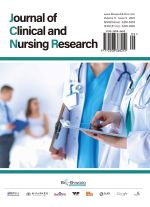Readiness for Independent Self-Care and Self-Management among Middle-Aged Patients with Type 2 Diabetes Mellitus
Abstract
Diabetes is a common chronic disease in clinical practice. The current global average prevalence is 2–6%, and more than 90% of patients have type 2 diabetes. Although there is a correlation between independent self-care and self-management, improving patients’ self-care and self-management behaviors can effectively improve patients’ quality of life. This study aimed to determine if a significant relationship exists between independent self-care and self-management. This study used a quantitative research design. The inclusion criteria included 198 participants using purposeful sampling. This study adopted a correlational research design to determine the association between self-care readiness (independent variable) and self-management (dependent variable). This study surveyed respondents using a three-part questionnaire, and their scores were recorded using the Demographic Profile Questionnaire, Transition Readiness Assessment Questionnaire (TRAQ), and Diabetes Self-Management Questionnaire (DSQM). The data were analyzed using statistical tools such as frequency, percentage, mean, standard deviation, Pearson R and hypothesis testing. The results showed a correlation between independent self-care and self-management in diabetic patients. These findings indicate that the respondents generally reported moderate to high levels of readiness and self-management, with more variability noted in self-management scores. Overall, the findings suggest that preparedness for independent self-care plays a statistically significant role in influencing self-management, although the strength of this relationship is relatively weak.
References
Tamiru S, Dugassa M, Amsalu B, et al., 2023, Effects of Nurse-Led Diabetes Self-Management Education on Self-Care Knowledge and Self-Care Behavior Among Adult Patients with Type 2 Diabetes Mellitus Attending Diabetes Follow-Up Clinic: A Quasi-Experimental Study Design. International Journal of Africa Nursing Sciences, 18: 100548.
Pai W, Hung C, Chen L, et al., 2024, Efficacy of a Health Education Technology Program in Improving Adherence to Self-Management Behaviors and Quality of Life Among Adults with Type 2 Diabetes: A Randomized Controlled Trial. Primary Care Diabetes, 18(5): 479–485.
Wu D, 2022, Effect of Knowledge-Attitude/Belief-Practice Nursing Intervention Mode on Self-Management Behavior of Type 2 Diabetes Patients. Nursing Practice and Research, 2022(03): 406–409.
Yang P, Wang Y, Wang Z, et al., 2022, Construction of the Stratified Graded Transitional Care Program for Patients with Type 2 Diabetes Based on the Triangle Model. Journal of Nursing Science, 2022(07): 85–89.
Sun X, Wei J, Xu H, et al., 2022, Effect of Goal-Oriented Nursing Model on Hypoglycemia and Self-Care Ability in Patients with Diabetic Nephropathy Undergoing Dialysis. Journal of Modern Integrated Traditional Chinese and Western Medicine, 31(06): 855–858.
Rajkumar E, Kruthika T, Angiel Ruth P, et al., 2022, Factors Influencing Optimal Glucose Control Among Type II Diabetes Patients: From the Health Behaviour Models’ Perspective. The Open Public Health Journal, 15(1): 1–9.
Sun N, 2022, Effect of Community Nursing Intervention on Medication Compliance in Patients with Type 2 Diabetes. Famous Doctors, 2022(22): 111–113.
Tang W, Wang W, Zhang J, et al., 2024, Application of Hospital-Community-Family Ternary Linkage Continuous Nursing in Patients with Type 2 Diabetes Mellitus. Nursing Research, 2024(14): 2596–2600.
Chinese Medical Association Diabetes Branch, 2021, Guidelines for Preventing and Treating Type 2 Diabetes in China (2020 Edition). Chinese Journal of Diabetes, 13(04): 315–409.
Liu H, 2022, Investigation and Correlation of Patient Activation, Hope Level, and Social Support in Patients with Type 2 Diabetes Mellitus, thesis, Guangxi University of Chinese Medicine.
Wu Q, 2022, Epidemiological Characteristics of Type 2 Diabetes and Its Related Factors Among Mongolian People in Inner Mongolia, thesis, Inner Mongolia Medical University.
Zhu T, He L, Shi Q, 2024, Application of Cognitive-Attitude-Behavior Reinforcement Strategy Based on Risk Perception in Patients with Type 2 Diabetes. General Nursing, 2024(05): 900–904.
Xie X, 2023, Study on Compliance Characteristics of Patients with Type 2 Diabetes Mellitus Based on Five-Carrier Theory, thesis, Dalian Medical University.
Chen L, 2023, Efficacy of APP-Assisted Structured Exercise in Intervention of Type 2 Diabetes, thesis, Nanjing University of Chinese Medicine.
Sun L, 2022, Study the Relationship Between Grip Strength, Diet, and the Prevalence of Type 2 Diabetes Mellitus in Middle-Aged and Elderly People, thesis, Yangzhou University.
Yang Y, 2023, Intervention Study on Regular Exercise of the Elderly with Type 2 Diabetes Based on the Cross-Theoretical Model, thesis, Nanjing University of Science and Technology.


